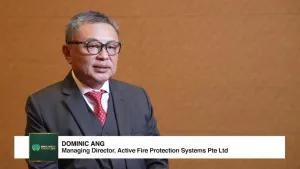
CFOs shift from ‘scorekeeper’ to Value Architects: EY
A value architect promotes sustainable and innovative, yet profitable, business models.
The Chief Financial Officer (CFO) role is evolving from a "financial scorekeeper" to a value architect, according to EY’s report.
A value architect promotes sustainable and innovative, yet profitable, business models that create value for the company, people, and the planet. This shift is accelerating as sustainability and technology imperatives grow, EY said.
In the report, EY tackled the factors driving this transformation, outlined the key characteristics and capabilities of this new role, and provided an action agenda for implementing it within organisations.
The two trends underscore the need for CFOs to pursue a role that leads the organisation to a comprehensive view of value and fosters long-term creation.
The first is strengthening sustainability imperatives, reinforced by new regulations and more robust reporting requirements, growing stakeholder expectations for delivery of sustainability targets, and the need to build business resiliency.
The second is automation and augmentation in the finance function, driven by AI, data, and analytics, creating new opportunities for strategic impact by the CFO.
With efficiency boosts from generative AI (GenAI) and data analytics, CFOs are beginning to act as the “business copilots.”
Soon, they will be in the position to drive consensus across the C-suite to align decisions with the company’s long-term value strategy.
In the next step, CFOs will become “value creators,” accelerating sustainability transformation by enabling sustainable and profitable business models and reconciling short-term cost savings with long-term value.
However, less than half of CFOs (48%) believe that they are already proactive value creators, whilst 80% are confident that they have the right skills to become key players in value creation, according to the 2024 EY Global Corporate Reporting Survey.
To fully realise their potential as value architects, CFOs must take three key actions. They need to design a value story that is infused with ESG, blueprint a business case that integrates financial and non-financial value, and construct a new operating model for finance.
“By prioritising long-term value creation and infusing it into corporate strategy, the CFOs of today—and value architects of the future—will enable their organisations to better meet investor expectations and more transparently and accurately secure long-term shareholder value creation,” said Myles Corson from the EY organisation.














